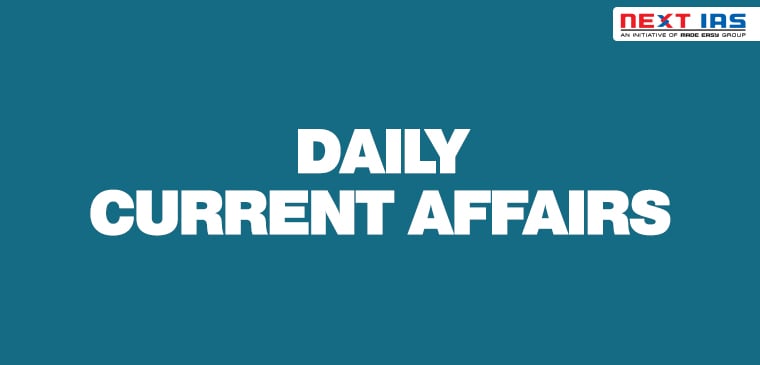
In News
Recently, a five-judge Constitution Bench of the Supreme Court (SC) has unanimously declared Maharashtra State Reservation for Socially and Educationally Backward Classes (SEBC) Act, 2018 unconstitutional.
Reservation in Maharashtra
- The Maharashtra State Reservation (of Seats for Admission in Educational Institutions in the State and for Appointments to the Posts in the Public Services under the State) for Socially and Educationally Backward Act, 2018 provided 12 per cent to 13 per cent quota benefits for the Maratha community.
- In June 2019, the Bombay High Court reduced it from the 16 per cent recommended by the Justice N.G. Gaikwad Commission to 12 per cent in education and 13 per cent in employment.
- Still, it took the reservation percentage in the State across the 50 per cent mark.
Plea Against SEBC Act
- A group of social workers and representatives of the Muslim community had challenged it for multiple concerns and the SC decided to look into it.
- Despite there being other identified socially and educationally backward communities, only Marathas were chosen which shows partiality.
- The action amounted to “one person or one community” legislation and was therefore struck by the equality clause guaranteed under Article 14 of the Constitution of India.
- It was violative of Article 342A of the Constitution as only the President is empowered to notify, in consultation with the Governor, for each State and UT, the list of socially and educationally backward classes.
Verdict on SEBC Act
- The SC found there was no “exceptional circumstances” or “extraordinary situation” in Maharashtra for breaking the 50 per cent ceiling limit.
- It also struck down the findings of the Gaikwad Commission, leading to the enactment of Maratha quota law, and set aside the Bombay High Court judgment, validating the SEBC Act.
- It concluded that even the reduced percentages of reservation granted by the High Court were ultra vires (Latin, meaning beyond the powers).
- It held that a separate reservation for the Maratha community violates Articles 14 (Right to Equality) and Article 21 (Due Process of Law).
- The SC has decided not to confine the question of reservation spilling over the 50 per cent limit to just Maharashtra.
- The Bench had expanded the ambit of the case by making other States party and inviting them to make their stand clear on the question of whether reservation should continue to remain within the 50 per cent boundary or not.
- Impact on the Beneficiaries
- The appointments made under the Maratha quota following the Bombay HC judgment endorsing the State law would hold, but they would get no further benefits.
- Students already admitted under the Maratha quota law would continue. Students admitted to postgraduate courses would not be affected since they were not given reservation.
On Revisiting Indira Sawhney Judgment
- The SC declined to re-visit its 1992 Indira Sawhney judgment, which fixed the reservation limit at 50 per cent.
- A nine-judge Bench of the SC upheld the 27 per cent quota for Backward Classes and struck down the government notification reserving 10 per cent government jobs for Economically Backward Classes among the higher castes.
- The limit has been considered a “Lakshman rekha“.
- It also upheld the principle that the combined reservation beneficiaries should not exceed 50 per cent of India’s population.
- However, it also held that only in certain exceptional and extraordinary situations for bringing far-flung and remote areas’ populations into mainstream said 50 per cent rule can be relaxed.
- The concept of ‘Creamy Layer’ also became popular through this judgment and also the provision that reservation for backward classes should be confined to initial appointments only and not extend to promotions.
- It highlighted that it does not find any substance to revisit the judgment or referring it to a larger bench as it has already been upheld by at least four Constitution Benches.
On Validity of Constitution (102nd Amendment) Act
- The members of the bench held different views on the validity of the Amendment Act.
- The Bench had looked into the question whether the Constitution (102nd Amendment) Act 2018, which set up the National Commission for Backward Classes (NCBC) interfered with the authority of State Legislatures to provide benefit to the social and educationally backward communities in their own jurisdiction.
- The Amendment Act had also introduced Articles 338B and 342A in the Constitution.
- Article 338B deals with the newly established NCBC.
- Article 342A empowers the President to specify the socially and educationally backward communities in a State.
- It says that it is for the Parliament to include a community in the Central List for socially and backward classes for grant of reservation benefits.
- The court had delved into whether Article 342A stripped State Legislatures of their discretionary power to include their backward communities in the State Lists.
- Justice Bhat agreed that only the President could make changes to the Central List of socially and backward classes based on data given from various sources, including the National Commission for Backward Classes.
- The States could only make “suggestions” and the “final exercise” of including castes and communities was done by the President alone.
- Justices Bhushan and Nazeer however concluded that the Parliament did not intend to take away from the States its power to identify their backward classes.
- However, they nevertheless upheld the validity of the Amendment Act.
National Commission for Backward Classes
|
Source: TH
Previous article
RBI Steps In To Ease COVID-19 Burden
Next article
Facts in News